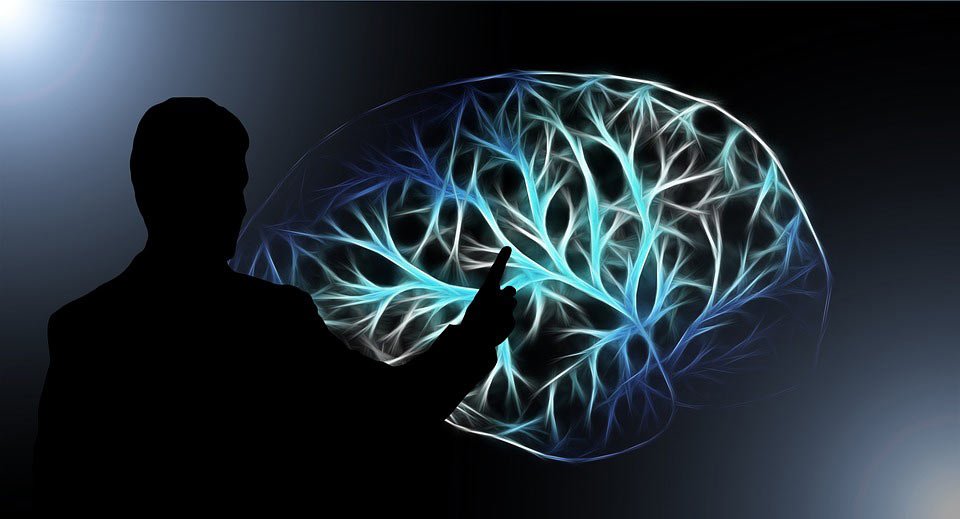In recent years, Alain Brunet’s Reconsolidation Therapy™ has enjoyed a wealth of media exposure validating the therapy by highlighting the numerous clinical trials and scientific publications dedicated to the treatment. The therapy has been covered in detail and referred to by both the general and scientific press as a first-line therapy for large-scale traumatic events in the future.
Escaping the dark: Helping terror attack victims with post-traumatic stress
Text excerpt: Brunet says the beauty of the treatment is not just that it works – there are other treatments, particularly cognitive behavioural therapy (CBT), that work well. But CBT requires a lot of expertise, he says. It’s a sophisticated treatment that requires years of training. His method, by contrast, can be taught to any clinician – and in the case of a mass attack that left hundreds or thousands traumatised, it could be widely and quickly deployed.
How Our Brains Make Memories
Surprising new research about the act of remembering may help people with post-traumatic stress disorder
Brunet has just completed a larger study with nearly 70 PTSD patients. Those who took propranolol once a week for six weeks while reading the script of their traumatic event showed an average 50 percent reduction in standard PTSD symptoms. They had fewer nightmares and flashbacks in their daily lives long after the effects of the drug had worn off. The treatment didn’t erase the patients’ memory of what had happened to them; rather, it seems to have changed the quality of that memory. “Week after week the emotional tone of the memory seems weaker,” Brunet says. “They start to care less about that memory.”
Can a blood pressure drug help ease the painful memory of an ex?
Text excerpt: “Often when you recall memory, if there’s something new to learn, this memory will unlock and you can update it, and it will be saved again,” the Canadian clinical psychologist tells the BBC. That process of reconsolidation creates a window of opportunity to target the highly emotional portion of that memory. “We’re using this enhanced understanding on how memories are formed and how they are unlocked and updated and saved again – we’re essentially using this recent knowledge coming out of neuroscience to treat patients,” says Dr Brunet. His work has often been compared to the science fiction film Eternal Sunshine of a Spotless Mind, where an estranged couple have their memories of each other erased, though Dr Brunet notes memories aren’t gone after reconsolidation therapy, they just stop hurting.
Illuminating Canadian documentary puts spotlight on PTSD
Text excerpt: Dr. Alain Brunet, director of the Psychosocial Research Division at Montreal’s Douglas Institute and a psychology professor at McGill, found success in treating Guiolet, the chef witness to the November 2015 terrorist attacks in Paris, with the beta-blocker Propranolol all the while reawakening his memories of the event.
Heal your broken heart with science — plus ice cream and good wine
Scientists in a new documentary offer their best advice for getting over a breakup
Text excerpt: In a treatment method called “reconsolidation therapy,” patients are given propranolol, a medication normally used to treat high blood pressure, and then are asked to recount the experience of their breakup, reliving the painful memories and emotions over several sessions. In the end, the emotional trauma of the breakup is lessened, but the memory remains.
Alain Brunet: A Psychologist Fighting Against Trauma
In the December issue titled “These Heroes Who Change the World”, Alain Brunet was mentioned in the section “Repair the Living”, as one of the 16 people who is changing the world: “His treatment erases the pain associated with a terrible memory”.
Dr. Alain Brunet discusses the use of Reconsolidation Therapy™ for heartbreak on the Savage Lovecast
The psychiatrist who heals the memories after the terrorist attacks
In the early stages of establishing his innovative treatment for post-traumatic stress disorder (PTSD), this Quebec psychologist came to France to offer his help after the terrorist attacks of November 13, 2015… Dr. Alain Brunet became one of the leading specialists of PTSD, for which he developed an amazing treatment. The central concept is to combine psychotherapy with the reactivation of a traumatic memory using a beta-blocker. The beta-blocker is a drug that decreases the intensity of emotions associated with a memory. The French media discovered the Brunet Method™ in mid-April when the researcher from McGill University came to Paris to present his project, “Paris MEM.” This study involves testing hundreds of individuals suffering from PTSD, mainly due to the aftermath of the terrorist attacks of November 13, 2015.
For the clinician and humanitarian, it is “an opportunity to get people back on their feet in record time after a large-scale event and to validate the use of Reconsolidation Therapy™ on a large scale.”
Following Attacks: the Miracle Treatment of Post-Traumatic Stress Disorder
Two 27-year-old friends survived the fatal terrorist attacks on November 13, 2015. They did so by “taking advantage” of that moment when the terrorists reloaded their weapons, and the two friends escaped the Bataclan … Within the next few months, they developed post-traumatic stress disorder. Since then, these two victims are feeling better. “Actually, spectacularly better.” This summer, the two survivors were among the first to participate in an important clinical study put in place by the Paris Hospital Network (AP-HP). About fifty patients – and 400 more to come – are participating in the study and will receive the new treatment. The breakthrough therapy was not created to help patients forget the terrorist attacks, but to alleviate the psychological consequences. “We interfere at the moment when the memory shifts from the short-term memory to long-term memory by reducing its intensity,” explains Dr. Alain Brunet, a trauma specialist at McGill University in Montreal and the co-head of the program. “We want to make sure that the traumatic memory becomes a mere bad memory … a bit like the memory of an ex-boyfriend.” …
“This is the largest study on the subject taking place on an international level. The results will be useful in advancing the treatment for victims of terrorist attacks around the world.”

It may be possible to ‘alter’ memories of heartbreak so they hurt less, research finds
It’s now possible to alter memories of severe heartbreak to lessen the emotional pain associated with them, according to research by a McGill University team.
“It does, a little bit, sound like science fiction, but it no longer is,” Alain Brunet, a professor of psychiatry at McGill’s Douglas Research Centre, told The Current’s interim host Laura Lynch…
Can a blood pressure drug help ease the painful memory of an ex?
A Montreal researcher says he has found a way to take the emotional sting out of a bad breakup by “editing” memories using therapy and a beta-blocker.
Dr. Alain Brunet has spent over 15 years studying post-traumatic stress disorder (PTSD), working with combat veterans, people who have experienced terror attacks and crime victims.
A Treatment that Heals the Memory of Victims
Psychologist Alain Brunet has developed a new revolutionary therapy for post-traumatic stress disorder. It was tested on the victims of the Paris and Nice terrorist attacks that took place on November 13, 2015, and July 14, 2016, respectively.
How a PTSD expert developed a viable cure for heartbreak
Everyone will experience heartbreak during their lives, but some breakups are more serious than others. For example, discovering that your long-term partner is leading a double life can cause severe trauma.
In his lab at McGill University in Montréal, Canada, Brunet studies victims of “romantic betrayals” using reconsolidation therapy…
A Miracle Treatment against PTSD
A Canadian psychiatrist advocates the use of a beta-blocker-based therapy that “blocks certain brain proteins that help an emotional memory materialize.” The highly-publicized clinical trial is currently underway.
If you could erase the worst memory of your life, would you? Scientists are working on a pill for that
The 60 souls that signed on for Dr. Alain Brunet’s memory manipulation study were united by something they would rather not remember. The trauma of betrayal.
For some, it was infidelity and for others, a brutal, unanticipated abandonment. “It was like, ‘I’m leaving you. Goodbye,” the McGill University associate professor of psychiatry says…
A New PTSD Treatment for Victims of Terrorist Attacks
People suffering from post-traumatic stress disorder (PTSD) following the terrorist attacks in Paris last year can benefit from a new therapy developed in Canada.
What does the Scientific Media say about it?
Alain Brunet’s Reconsolidation Therapy has been the subject of much attention in many health journals. It has piqued their interest due to its importance in terms of public health. This treatment brings hope to patients with PTSD.
Post-traumatic stress disorder: A cure?
Following the tragic terrorist attacks in Paris on November 13, 2015, many people – both directly and indirectly affected – have developed PTSD. Touched by this terrible news, Alain Brunet, the Director of research in psychotraumatology at McGill University (Montreal, Canada) and a specialist in trauma for more than 15 years, offered his support to the Director of the Paris Hospital Network (AP-HP). “Psychiatry is not suited to the management of mass trauma,” he says. His objective is to train staff with his innovative method voluntarily.
The goal is twofold: to train staff and to advance research, with the added possibility of evaluating this method on a larger scale. The doctors involved aim to include 400 patients in their study, with the hope to compare Brunet’s method with other forms of treatment (antidepressants and psychotherapy).
Post-traumatic stress disorder is a memory-related disorder, says Dr. Brunet: “Someone who suffers from it feels like they are in the movie, ‘A Day Without End,’ where a single day is repeated constantly.” Dr. Brunet’s therapy presents an approach that seems to be paying off.
An innovative therapy for treating post-traumatic stress
An innovative therapy, combining medication and psychotherapy, has been developed to treat post-traumatic stress.
Following the tragic terrorist attacks in Paris on November 13, 2015, many people – both directly and indirectly affected – have developed PTSD. Touched by this tragic news, Alain Brunet, the Director of research in psychotraumatology at McGill University (Montreal, Canada) and a specialist in trauma for more than 15 years, offered his support to the Director of the AP-HP, Martin Hirsch. “Psychiatry is not suited to the management of mass trauma,” he says. His objective is to voluntarily train staff with the innovative method that he has put in place to take care of patients.
The goal is twofold: to train staff and to advance research (with the added possibility of evaluating the method on a larger scale). The doctors involved aim to include 400 patients in their study, with the hope of comparing Dr. Brunet’s method with other forms of treatment (antidepressants and psychotherapy).


